Alabama Fake ID
Introduction:
The Reality of Fake IDs in Modern America
In today's digital era, acquiring a fake ID has become easier than ever before. Websites and online platforms offer various types of counterfeit documents, including IDs that replicate Alabama's state-issued identification cards. While this may sound like a harmless venture for some, especially underage individuals seeking access to age-restricted activities like alcohol or nightlife, the implications of obtaining and using a fake ID are far-reaching and severe.
This article will provide an in-depth analysis of Alabama Fake IDs, discussing how they are created, the laws surrounding their use, who the typical buyers are, and the larger ramifications for both individuals and society.
Section 1: Alabama’s Identity Verification System
Overview of the Alabama Driver's License
Before delving into the world of fake IDs, it’s essential to understand the real thing: the Alabama driver's license. In Alabama, a driver's license serves as the primary form of identification for most residents. Issued by the Alabama Law Enforcement Agency (ALEA), these licenses feature specific design elements aimed at preventing forgery. These features include holograms, UV light images, and microtext—elements that legitimate licenses possess to distinguish them from counterfeit versions.
Role of Real ID in Alabama
In 2005, the U.S. Congress passed the Real ID Act to improve security standards for state-issued IDs. Alabama began issuing Real ID-compliant licenses in 2017, which introduced an additional layer of complexity for fake ID makers, as these IDs have more sophisticated security features like digital watermarks and machine-readable zones.
Section 2: The Production of Fake IDs
How Fake IDs are Made
Creating a convincing fake ID requires an understanding of both the physical characteristics of an official ID and the underlying technologies used for verification. Skilled counterfeiters use high-quality printers, specialized materials like PVC plastic, and advanced software to replicate state-issued identification documents. Alabama’s driver's licenses, for example, include multiple layers of security, from holographic elements to embedded microchips.
However, counterfeiters continuously evolve their techniques, learning to copy these elements with precision. These advancements make it increasingly difficult for untrained individuals—such as bar staff or store clerks—to identify fake IDs on sight, thereby posing a growing problem for law enforcement and businesses.
Section 3: Who Uses Fake IDs and Why?
Target Audience of Fake IDs in Alabama
Fake IDs are most commonly sought after by underage individuals looking to participate in activities restricted by age, such as purchasing alcohol or gaining entry to clubs. In Alabama, where the legal drinking age is 21, the market for fake IDs is largely driven by college students. Universities in Alabama, such as Auburn University and the University of Alabama, have been noted as hotspots for fake ID usage due to their large populations of underage students seeking access to nightlife.
Secondary Users: Criminal Activity and Identity Fraud
Beyond college students, fake IDs are also used for more nefarious purposes. Criminals involved in identity theft or fraud may use counterfeit IDs to open bank accounts, apply for loans, or commit other forms of financial fraud. The implications of these activities are severe, not only for the individuals involved but also for the businesses and financial institutions that fall victim to these schemes.
Section 4: Legal Consequences of Using Fake IDs
Alabama State Laws on Fake IDs
In Alabama, using or possessing a fake ID is a criminal offense. The severity of the punishment depends on the specific circumstances, including the intent behind using the fake ID and whether it was used to commit fraud or a misdemeanor offense like underage drinking.
According to Alabama law, being caught with a fake ID can lead to fines, jail time, and a criminal record. For first-time offenders, the penalties may include a fine of up to $500 and a suspension of driving privileges for up to 90 days. However, more severe consequences apply if the fake ID is used in connection with financial fraud or other criminal activities.
Section 5: The Online Marketplace for Fake IDs
How Easy is it to Get a Fake ID?
The rise of the internet and dark web marketplaces has made it increasingly easy for individuals to obtain fake IDs. Websites advertise the ability to create high-quality counterfeit IDs, often tailored to specific states, including Alabama. These sites usually accept payment in cryptocurrencies like Bitcoin, adding a layer of anonymity to the transaction process.
Risks of Buying a Fake ID Online
While these websites make grand claims about the quality and legitimacy of their products, there are numerous risks involved in purchasing fake IDs online. For one, many of these sites are scams—customers pay for an ID that either never arrives or arrives in poor quality, making it easy to detect as fake. Additionally, law enforcement agencies regularly monitor these marketplaces, meaning that purchasing a fake ID could lead to criminal charges or being placed on a watchlist.
Section 6: Technologies Combatting Fake IDs
The Rise of ID Scanners
To combat the growing issue of fake IDs, many businesses, particularly those in the nightlife and retail sectors, have invested in ID scanners. These devices can quickly and accurately verify the authenticity of an ID by checking the encoded information in the barcode or magnetic strip. In Alabama, many bars, clubs, and liquor stores now rely on ID scanning technology as their first line of defense against underage drinking.
Biometrics and the Future of Identity Verification
Beyond ID scanners, new technologies are emerging that promise to make fake IDs virtually obsolete. Biometrics—such as facial recognition software, fingerprint scans, and iris recognition—are becoming increasingly popular as secure alternatives to traditional ID verification methods. In Alabama, some law enforcement agencies have begun using facial recognition software to cross-check individuals against DMV records, making it nearly impossible for a fake ID to go undetected.
Section 7: Consequences of Fake IDs for Businesses
Legal and Financial Risks for Businesses
Businesses in Alabama that serve alcohol or provide age-restricted services have a legal obligation to verify the identity and age of their customers. If they fail to do so and are found serving minors with fake IDs, they can face steep fines, loss of liquor licenses, and other penalties. This is why many businesses have invested heavily in ID verification technologies and training for their employees.
Section 8: Prevention and Education
Educating the Public on the Risks of Fake IDs
In recent years, Alabama has increased its efforts to educate young people about the risks and consequences of using fake IDs. Public service campaigns, school-based programs, and university initiatives have been implemented to inform students about the legal dangers of using fake identification.
Partnerships Between Law Enforcement and Local Businesses
Law enforcement agencies in Alabama frequently partner with local businesses to crack down on fake ID usage. Undercover operations, sting operations, and random ID checks are all tactics used to catch individuals attempting to use fake IDs.
Conclusion
Understanding the Bigger Picture
While the temptation to use a fake ID might seem harmless to some, the risks and consequences are severe. In Alabama, both individuals and businesses are taking increased steps to prevent the use of fraudulent identification. As technology continues to evolve, the hope is that more sophisticated security measures will help reduce the prevalence of fake IDs and associated crimes.
By understanding the legal and personal ramifications of using a fake ID, individuals can make more informed decisions and avoid potentially life-altering consequences.
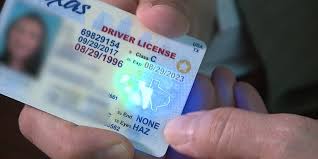 Kansas Fake ID
Kansas Fake ID
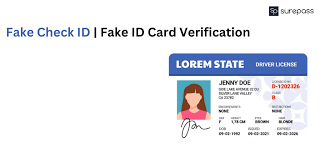 Delaware Fake ID
Delaware Fake ID
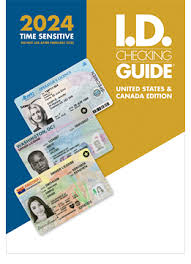 Arizona Fake ID
Arizona Fake ID
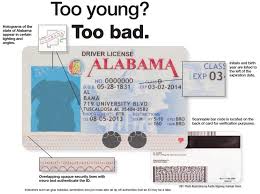 Illinois Fake IDs
Illinois Fake IDs
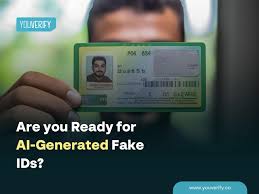 Best Illinois Fake ID
Best Illinois Fake ID
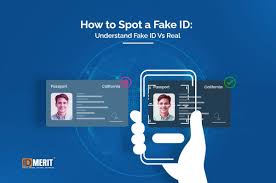 Personalized Illinois Fake ID
Personalized Illinois Fake ID
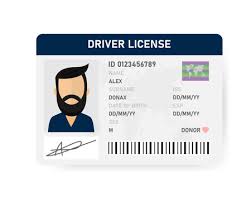 Custom Illinois Fake ID
Custom Illinois Fake ID
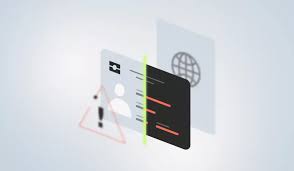 market analysis of fake IDs
market analysis of fake IDs
